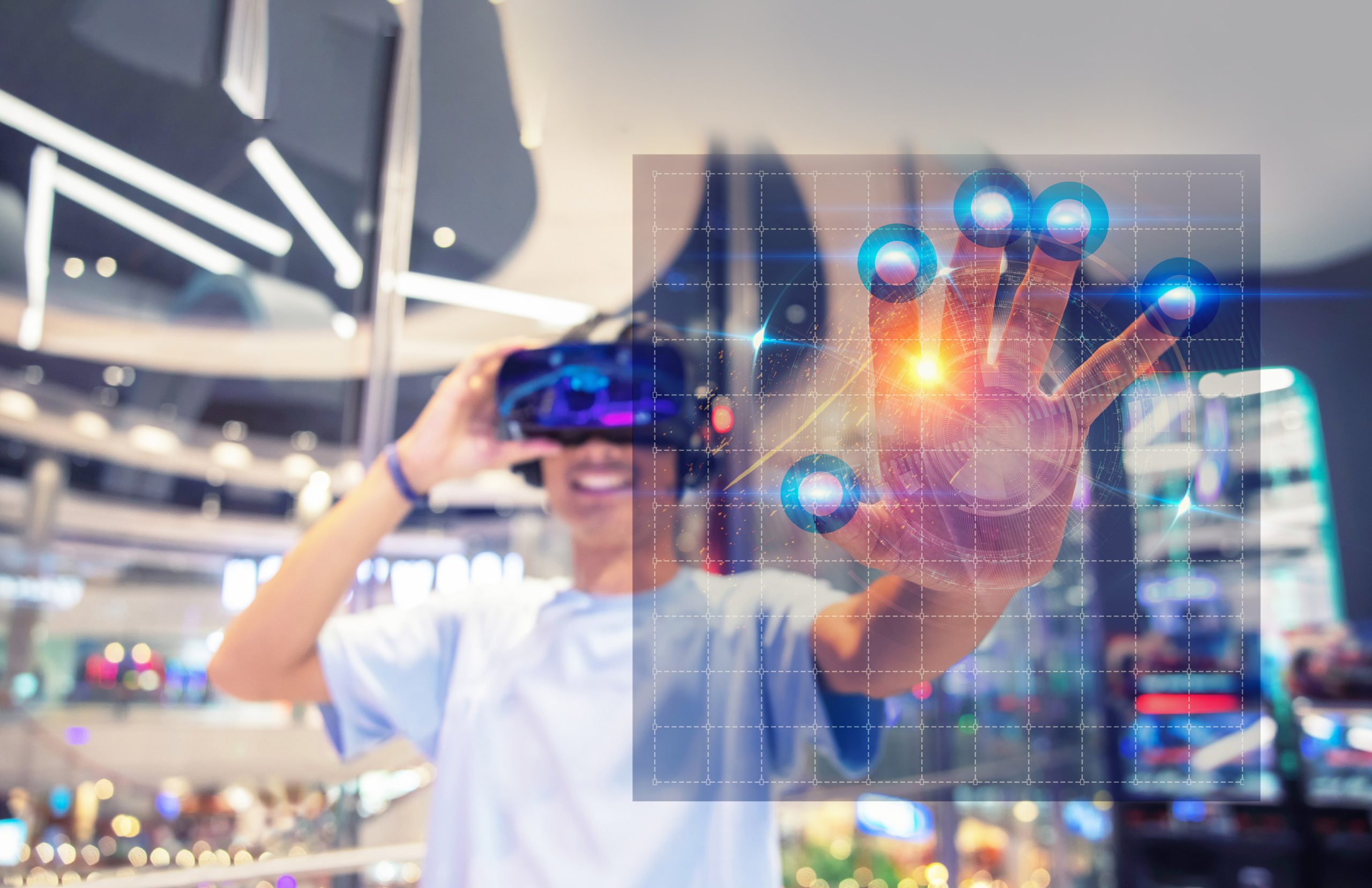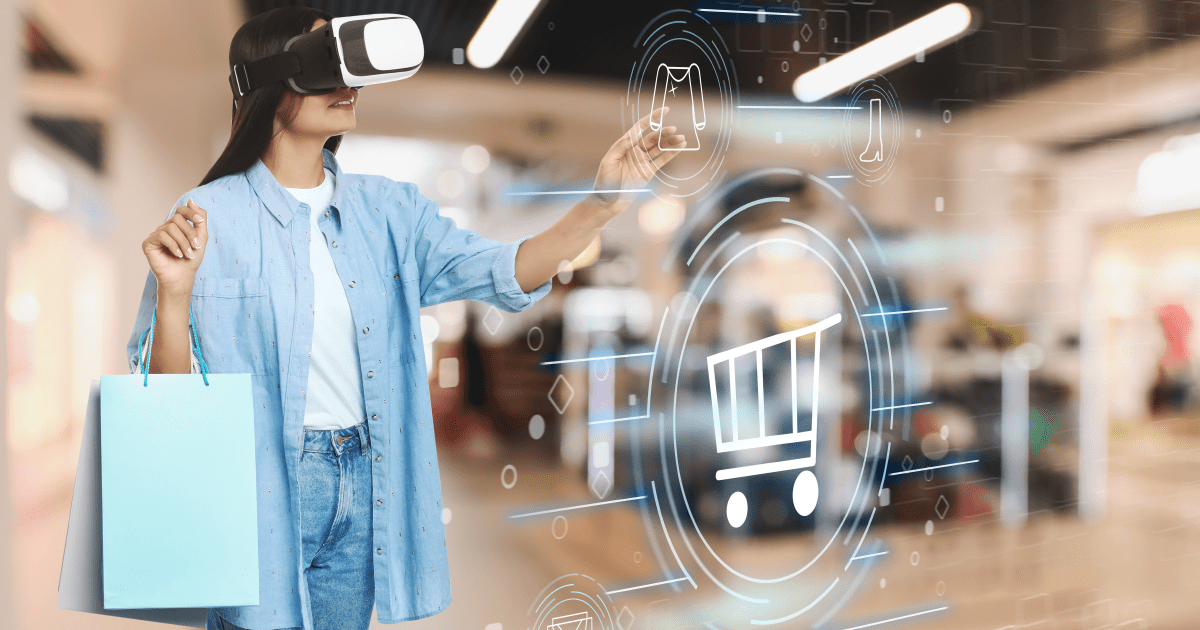Today, in the midst of a digital revolution, the “Future of Retail” is being shaped by innovative technologies, shifting consumer behaviour, and an increasing demand for personalized experiences.
Future of Retail [Transformation]
Retail business, the backbone of global commerce, has undergone remarkable transformations throughout history. From the humble marketplaces of ancient civilisations to the rise of brick-and-mortar stores in the 20th century, retail has constantly adapted to meet the changing needs and expectations of consumers.
In this article, we will explore the exciting developments and trends that are going to shape the future of retail business on a global scale.

Evolution of Ecommerce: Embracing the Future of Retail
The future of retail business is undoubtedly exciting and filled with opportunities for growth and innovation. E-commerce will continue to dominate, while physical stores will evolve to provide unique experiences.
Also Read: Ecommerce Trends to grow business in 2023
To thrive in the future retail landscape, businesses must adapt, embrace technological advancements, and prioritise customer-centric strategies. By staying agile and responsive to changing consumer demands, retailers can forge ahead and create a retail experience that combines the best of digital innovation and personalized service. Head down below to the key points or trends which are going to boost the “Future of Retail”.
- The Rise of E-commerce
- Omni-channel Approach
- Power of Data and Personalisation
- Augmented Reality and Virtual Reality
- Automation and Artificial Intelligence
-
The Rise of E-Commerce
E-commerce has revolutionised the retail industry, offering convenience, vast product selection, and competitive pricing to consumers worldwide. Online shopping has experienced exponential growth, and the momentum shows no signs of slowing down.
According to recent projections, global e-commerce sales are expected to reach trillions of dollars in the coming years. The convenience of shopping from the comfort of one’s home, coupled with improved logistics and faster delivery options, has made e-commerce the preferred choice for many consumers.
Moreover, the pandemic accelerated the shift to online shopping as physical stores faced temporary closures and restrictions. Retailers quickly adapted, investing in robust e-commerce platforms and enhancing their online presence. As a result, consumers who were previously hesitant about online shopping have now embraced this digital channel.
-
The Omni-channel Approach in future of Retail
While e-commerce has witnessed remarkable growth, physical stores continue to play a significant role in the retail landscape. However, the future of retail lies in the seamless integration of online and offline channels. This approach, known as the omnichannel strategy, allows retailers to provide a unified shopping experience across various touchpoints.
Omni-channels retailing enables customers to research, purchase, and return products through multiple channels seamlessly. For instance, customers can start their shopping journey by browsing products online, visit a physical store to see and try the items, and finally make the purchase through a mobile app.
The integration of data analytics and customer relationship management systems helps retailers personalize the shopping experience and tailor promotions based on individual preferences.
-
The Power of Data and Personalisation
In the future, data will be the driving force behind successful retail businesses. Retailers are increasingly leveraging customer data to gain valuable insights into purchasing patterns, preferences, and behaviour. Advanced analytics and artificial intelligence (AI) enable retailers to offer personalized recommendations, targeted marketing campaigns, and customised shopping experiences for e-commerce businesses.
With the advent of technologies such as machine learning and natural language processing, retailers can analyse vast amounts of data to understand consumer preferences and anticipate their needs. This level of personalization not only enhances customer satisfaction but also increases customer loyalty and drives repeat purchases. Retailers who invest in data-driven strategies will have a competitive edge in the evolving retail landscape.
-
Augmented Reality and Virtual Reality
Augmented reality (AR) and virtual reality (VR) technologies are reshaping the way consumers experience retail. AR allows customers to visualise products in their own environment before making a purchase.
For example, furniture retailers can offer AR applications that enable customers to see how a sofa would look in their living room or how a new paint colour would appear on their walls.
Similarly, VR is transforming the concept of in-store shopping. Virtual reality headsets can transport customers to virtual stores, where they can browse and interact with products in a lifelike environment. This immersive experience brings the convenience of online shopping together with the sensory aspects of physical stores.
As these technologies continue to evolve, retailers will find new and innovative ways to engage with customers and provide memorable shopping experiences.
-
Automation and Artificial Intelligence
Automation and AI have become integral parts of retail operations, from supply chain management to customer service. Automation streamlines processes, reduces costs, and improves efficiency in areas such as inventory management, order fulfillment, and warehouse operations. By automating repetitive tasks, retailers can allocate resources more strategically, focusing on areas that require human expertise.
Moreover, AI-powered chatbots and virtual assistants are transforming customer service by providing instant and personalized support. These intelligent systems can handle inquiries, provide product recommendations, and offer real-time assistance, improving customer satisfaction and reducing response times. Additionally, AI algorithms can optimise pricing strategies, analyse market trends, and forecast demand, allowing retailers to make data-driven decisions.

Conclusion
Again, the future of retail business is undoubtedly exciting and filled with opportunities for growth and innovation. E-commerce will continue to dominate, while physical stores will evolve to provide unique experiences. The omni-channel approach will become the norm, with retailers seamlessly integrating online and offline channels.
Data-driven strategies, powered by AI and analytics, will enable retailers to deliver personalized experiences and anticipate customer needs. Moreover, emerging technologies like AR and VR will reshape the way customers engage with products, and automation will optimize retail operations.
To thrive in the future retail landscape, ecommerce business must adapt, embrace technological advancements, and prioritise customer-centric strategies. By staying agile and responsive to changing consumer demands, online selling platforms can forge ahead and create a retail experience that combines the best of digital innovation and personalized service. The future of retail is not just about transactions; it is about building meaningful relationships and delivering exceptional experiences to customers around the world.
Happy Retailing!




